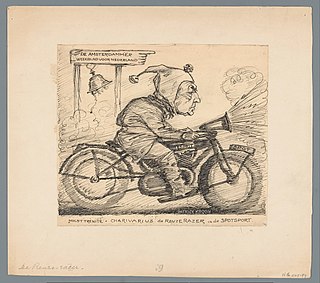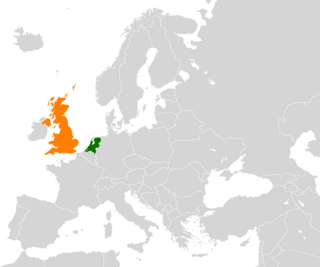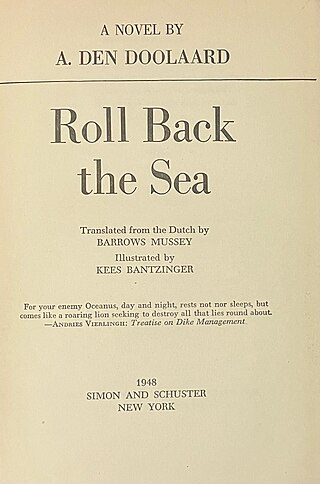
Isaac Emmanuilovich Babel was a Russian writer, journalist, playwright, and literary translator. He is best known as the author of Red Cavalry and Odessa Stories, and has been acclaimed as "the greatest prose writer of Russian Jewry." Babel was arrested by the NKVD on 15 May 1939 on fabricated charges of terrorism and espionage, and executed on 27 January 1940.

IJ is a digraph of the letters i and j. Occurring in the Dutch language, it is sometimes considered a ligature, or a letter in itself. In most fonts that have a separate character for ij, the two composing parts are not connected but are separate glyphs, which are sometimes slightly kerned.

West Frisian, or simply Frisian, is a West Germanic language spoken mostly in the province of Friesland in the north of the Netherlands, mostly by those of Frisian ancestry. It is the most widely spoken of the Frisian languages.

Johan Hendrik Caspar Kern was a Dutch linguist and Orientalist. In the literature, he is usually referred to as H. Kern or Hendrik Kern; a few other scholars bear the same surname.
William Bradley Strickland is an American writer known primarily for fantasy and science fiction. His speculative fiction is published under the name Brad Strickland except for one novel written as Will Bradley. By a wide margin his work most widely held in WorldCat participating libraries is The Sign of the Sinister Sorcerer, which concluded the Lewis Barnavelt series created by John Bellairs (1938–1991).

Gerard Nolst Trenité, was a Dutch observer of English.
Dutch is a West Germanic language, that originated from the Old Frankish dialects.

The Low Countries comprise the coastal Rhine–Meuse–Scheldt delta region in Western Europe, whose definition usually includes the modern countries of Luxembourg, Belgium and the Netherlands. Both Belgium and the Netherlands derived their names from earlier names for the region, due to nether meaning "low" and Belgica being the Latinized name for all the Low Countries, a nomenclature that became obsolete after Belgium's secession in 1830.

The Word list of the Dutch language is a spelling dictionary of the Dutch language. It is officially established by the Dutch Language Union. Because of the colour of its published form, it is better known as the Green Booklet.
Witte Boekje is the popular name for the Spelling Guide of Our Language, a publication of the Genootschap Onze Taal. The first edition was released in October 1998; the latest edition is the tenth and was released in 2004. All these publications are explanations of the official spelling rules, as set by the Dutch Language Union.
The Dutch have a code of etiquette which governs social behaviour and is considered important. Because of the international position of the Netherlands, many books have been written on the subject. Some customs may not be true in all regions and they are never absolute. In addition to those specific to the Dutch, many general points of European etiquette apply to the Dutch as well.

The predominant language of the Netherlands is Dutch, spoken and written by almost all people in the Netherlands. Dutch is also spoken and official in Aruba, Bonaire, Belgium, Curaçao, Saba, Sint Eustatius, Sint Maarten and Suriname. It is a West Germanic, Low Franconian language that originated in the Early Middle Ages and was standardised in the 16th century.
The history of Dutch orthography covers the changes in spelling of Dutch both in the Netherlands itself and in the Dutch-speaking region of Flanders in Belgium. Up until the 18th century there was no standardization of grammar or spelling. The Latin alphabet had been used from the beginning and it was not easy to make a distinction between long and short vowels (a / aa). The word jaar (year) for instance, could be spelt jar,jaer,jair, or even yaer and iaer. With the spirit of the French Revolution, attempts were made to unify Dutch spelling and grammar. Matthijs Siegenbeek, professor at Leiden was officially asked in 1801 to draw up a uniform spelling.
Spocanian is a constructed language, created by the Dutch linguist Rolandt Tweehuysen. Unlike such invented languages as Esperanto, Spocanian was never intended to be used for international communication; instead, it serves as the language of Spocania, a fictional island group in the Atlantic Ocean, southwest of Ireland.

In the Netherlands, the English language can be spoken by the vast majority of the population, with estimates of English proficiency reaching anywhere from 90% to 93% of the Dutch population. Contributing factors for the high degree of English fluency are the similarity of the two languages, the country's small size, dependence on international trade, and the use of subtitles for foreign languages on television, rather than audio dubbing. Dutch children have to start learning English in primary school from age ten at the latest. Additionally, more and more Dutch schools, at all levels of education, have adopted English as a language to teach in.
Dutch profanity can be divided into several categories. Often, the words used in profanity by speakers of Dutch are based around various names for diseases. In many cases, these words have evolved into slang, and many euphemisms for diseases are in common use.

Theodorus Johannes Thijssen was a Dutch writer, teacher and socialist politician. He is best known for the book Kees de Jongen.

Marieke Lucas Rijneveld is a Dutch writer. Rijneveld won the 2020 International Booker Prize together with his translator Michele Hutchison for the debut novel The Discomfort of Evening. Rijneveld is the first Dutch author to win the prize, the first non-binary person to do so and only the third Dutch author to be nominated.
Kenneth R. Rosen is an American writer, journalist and war correspondent based in Central Europe. He is the recipient of the Bayeux Calvados-Normandy Award for war correspondents and has been twice a finalist for the Livingston Awards. Rosen is the author of two nonfiction books, Bulletproof Vest and Troubled: The Failed Promise of America’s Behavioral Treatment Programs, which were published in 2020 and 2021 respectively. He is a contributing writer at Wired. He has also written for The New Yorker, The New York Times, The Atavist, Politico and others.

Het verjaagde water is a 1947 Dutch non-fiction novel written by A. den Doolaard, which gives an account of the recovery works to repair dike breaches after the October 1944 Inundation of Walcheren as part of operations by The Allies of World War II during Operation Infatuate. Researchers from Delft University of Technology have found high levels of historical accuracy in den Doolaard's descriptions of the events that took place, the methods used to close the dikes and the key people involved. Den Doolaard assigned pseudonyms to most of the main characters and organisations. The name A. den Doolaard is also a pseudonym, the author’s real name being Cornelis Johannes George Spoelstra Jr.












